Iloilo City, Philippines – 09 July 2025
As the Augustinian International Research Conference (AIR-C) enters its second day, the discourse on artificial intelligence (AI) deepens, bringing to light its profound implications, ethical challenges, and unprecedented opportunities across sectors. Building on yesterday’s explorations of AI in education, healthcare, and innovation, today’s sessions amplify the conversation with insights from more experts, scholars, and practitioners. From redefining material sciences to confronting algorithmic biases, the conference continues to serve as a vital platform for knowledge exchange, collaboration, and critical reflection. As the delegates and guests engage with cutting-edge research and visionary keynotes, the question remains: How can we harness AI’s transformative power to foster human flourishing while navigating its ethical complexities? The answers unfold in day two’s dynamic presentations and debates.
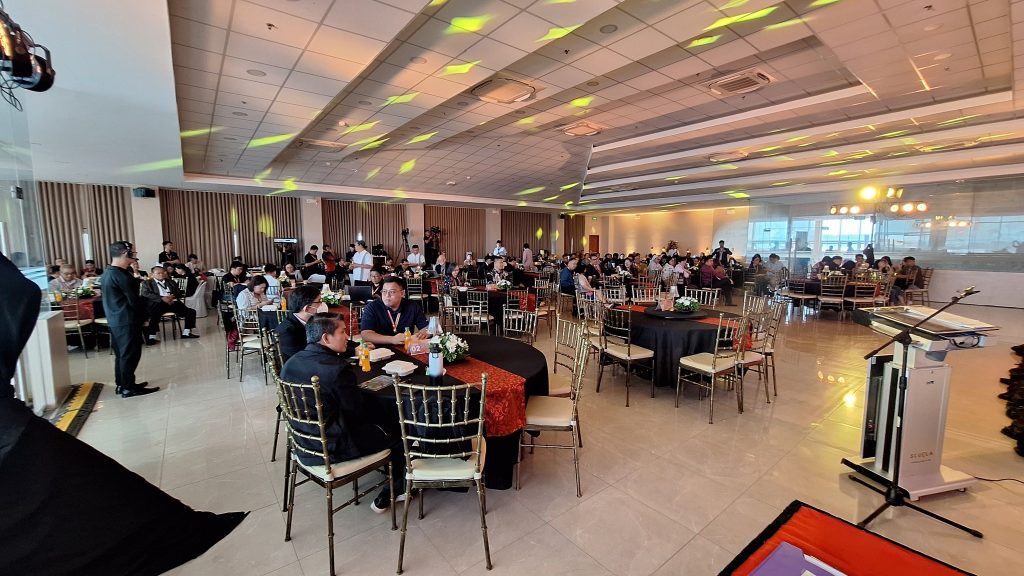
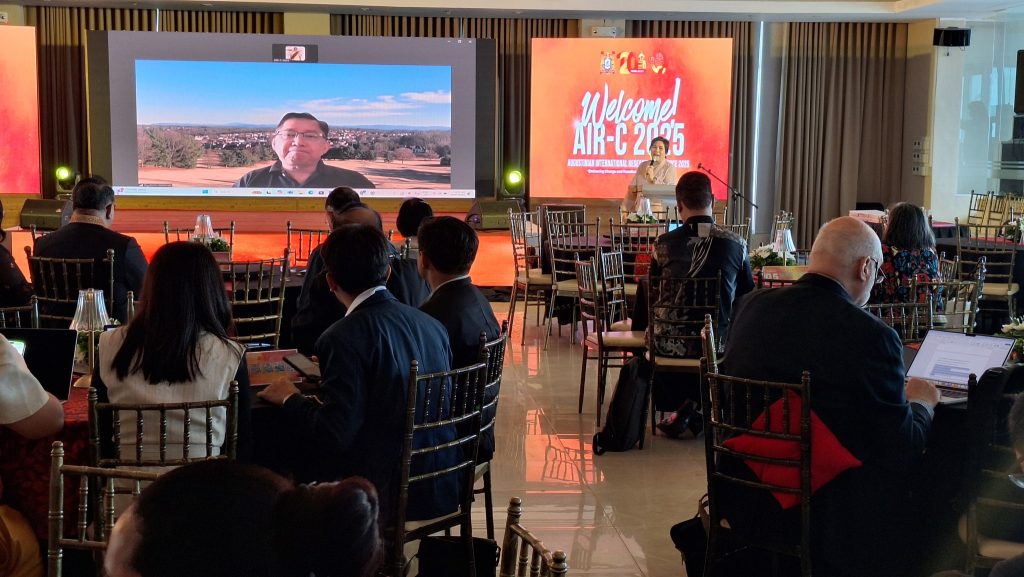
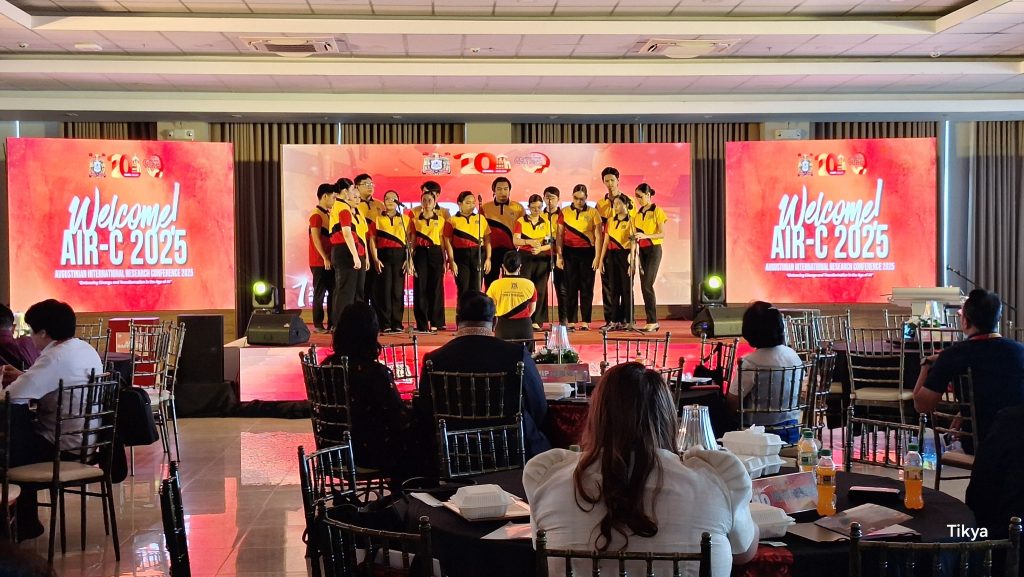
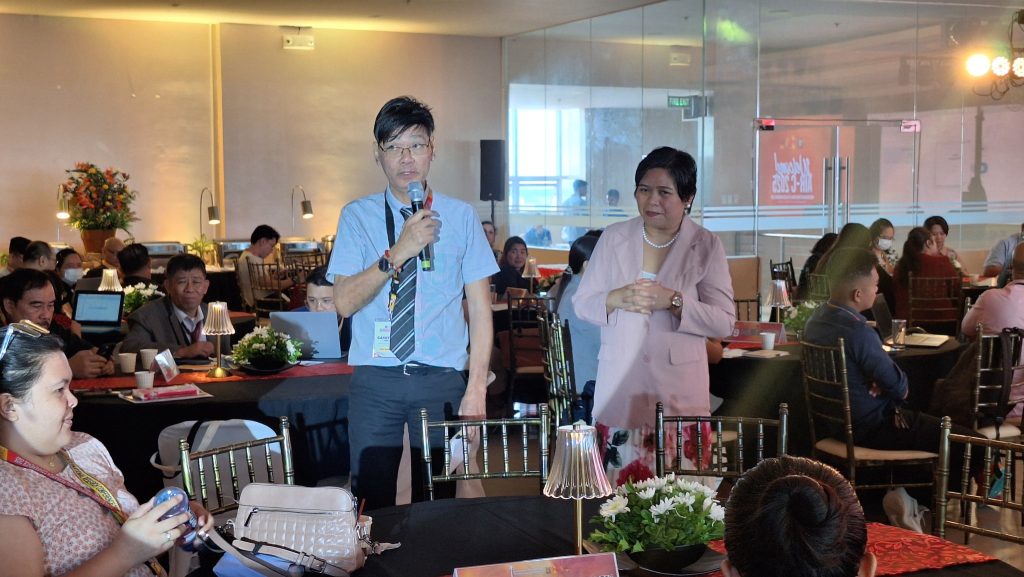
The day began with a recap of Day 1’s highlights, followed by two compelling plenary talks. Prof. Rigoberto C. Advincula (University of Tennessee Knoxville), joining virtually, showcased how AI and machine learning (ML) are revolutionizing materials science. His presentation, “Towards More AI/ML in Advanced Materials and Manufacturing: Philippine Innovationeering,” emphasized AI’s role in optimizing nanocomposite fabrication and additive manufacturing. “AI reduces trial-and-error in research,” he noted, urging Philippine institutions to invest in STEM education to harness these technologies.
The second plenary speaker, Dr. Marieta B. Sumagaysay (University of the Philippines Tacloban), tackled a pressing social issue in her talk, “Overcoming Sexism in Algorithms: Towards Gender Equality in AI.” She revealed how biased datasets and design processes perpetuate discrimination in AI systems, citing examples from healthcare and hiring algorithms. “AI mirrors human biases,” she asserted, proposing solutions like gender-sensitive data collection and ethical audits. Her call to “educate algorithms” resonated with attendees, sparking discussions.
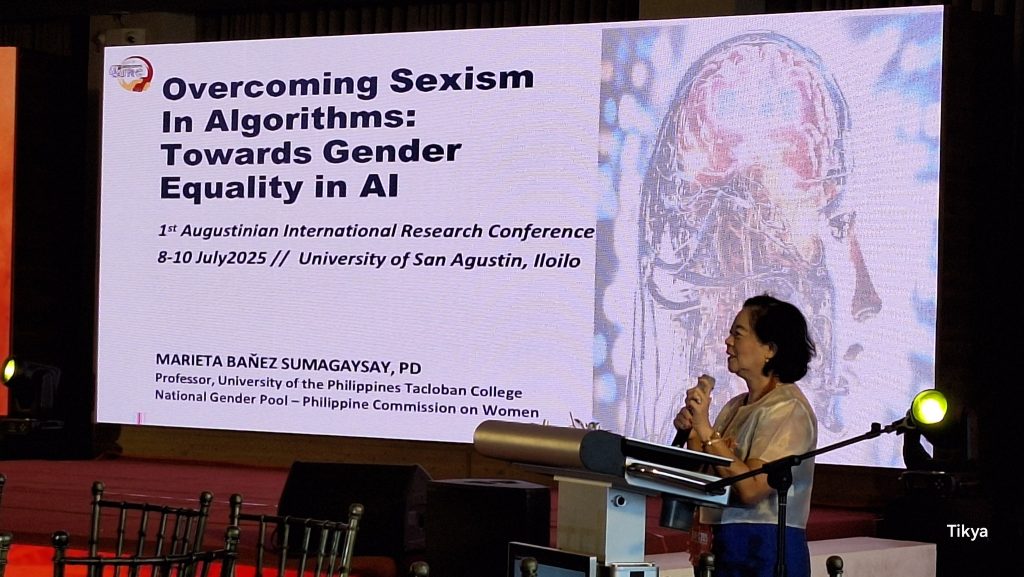
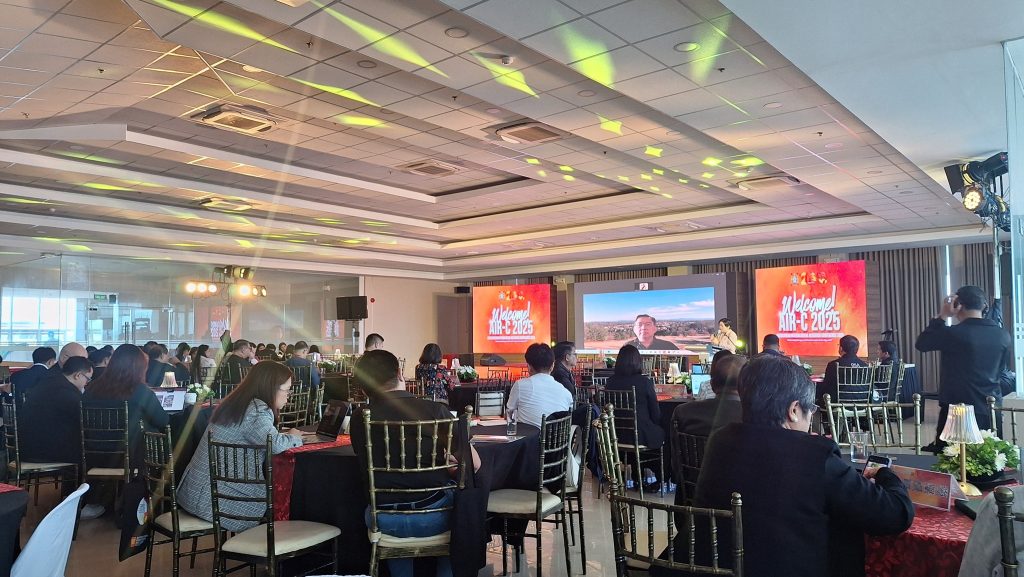
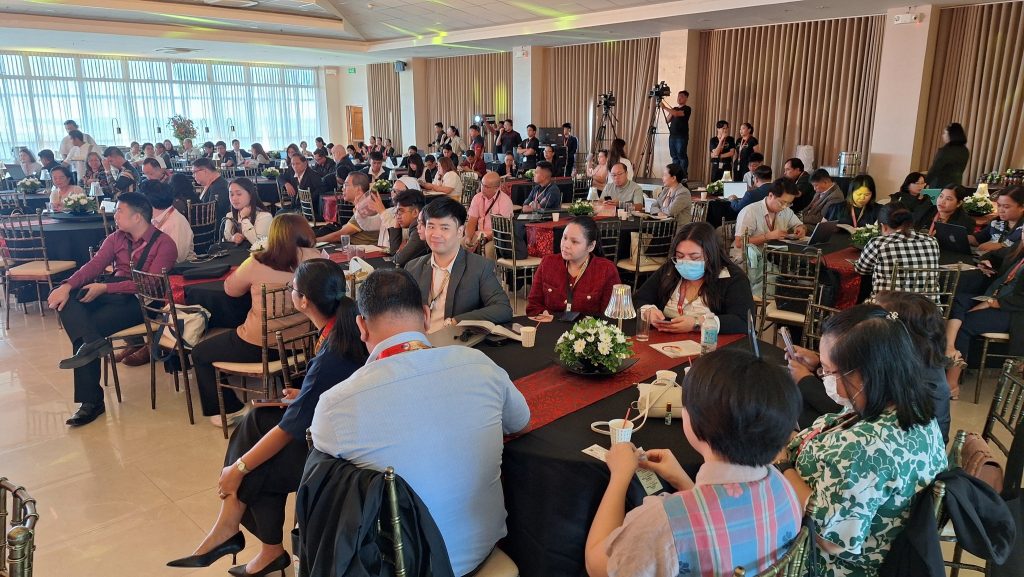
Day two’s parallel sessions in four clusters delved deeper into AI’s interdisciplinary applications. In the Business and Education cluster, keynote speaker Mr. Naqi Azam (Mylynx International Cambodia) examined AI-driven cultural shifts in organizations, with his presentation “Culture Change and Transformation in an AI Era” highlighting the need for human-centered leadership through examples from Microsoft and HP. Complementing this organizational focus, oral presenters explored AI’s educational impact, presenting frameworks for integrating Augustinian values into AI-aided teaching and studies on balancing tradition and innovation in history education.
The Allied Medical Health cluster showcased AI’s transformative potential in healthcare, with Dr. Mohd Makmor Bakry (Universiti Kebangsaan Malaysia) unveiling applications in pharmaceutical care ranging from personalized medication to supply-chain optimization. Researchers further demonstrated the breadth of healthcare AI applications through studies on mental health interventions and breakthroughs in natural therapeutics, reinforcing the conference’s emphasis on ethical healthcare innovation.
In the Science and Emerging Technology cluster, Dr. Noel Peter Tan (University of San Agustin) discussed AI’s role in accelerating scientific discovery while cautioning against inequitable access to these powerful tools. The session highlighted AI’s versatility through presentations spanning AI-powered poultry farming systems and innovative approaches to fostering critical thinking in science education through artificial intelligence integration.
The Social Sciences and Humanities cluster addressed AI’s broader societal implications, with Associate Justice Zaldy Trespeses (Sandiganbayan) outlining necessary legal adaptations to AI, specifically referencing Philippine cybercrime and data privacy laws. The cluster’s interdisciplinary approach was further demonstrated through research that drew parallels between classic literature and modern AI ethics, while other presentations analyzed algorithmic biases within socio-political contexts, emphasizing the need for ethical AI development across all sectors of society.
As the day concluded with more collaborative discussions about AI, day three poised to explore how AI influence business from its last plenary speaker, Mr. Yukio Toyoshima. AIR-C 2025 continues to spark dialogues that shape a just and transformative future.


